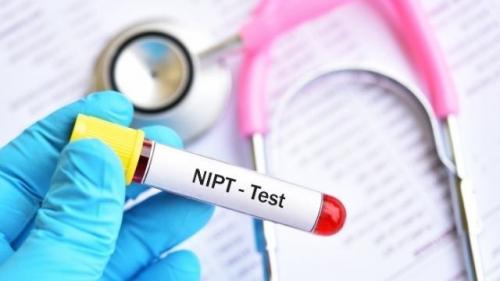How Is NIPT Transforming Prenatal Medicine?

Prenatal medicine has witnessed remarkable
advancements in recent years and one of the most significant breakthroughs is
the introduction of non-invasive prenatal testing (NIPT).
This revolutionary technology has transformed
the landscape of prenatal care, providing expectant parents with unparalleled
insights into the genetic match of their unborn child.
The power of precision offered by NIPT offers a safer and more accurate
alternative to traditional screening methods.
Therefore, today's article focuses on the power
of precision that the NIPT test in the UK
brings to prenatal care.
The Precision Of NIPT-
What sets NIPT apart is its unparalleled
precision.
Traditional screening methods, such as the
first-trimester combined screening or the second-trimester
screening, have limitations in terms
of accuracy.
NIPT, on the other hand, boasts impressive
sensitivity and specificity in detecting common chromosomal abnormalities, such
as Down syndrome (Trisomy 21), Edwards syndrome (Trisomy 18), and Patau
syndrome (Trisomy 13).
The precision of NIPT not only helps in
identifying these abnormalities with a higher degree of accuracy but also
reduces the occurrence of false positives and false negatives, providing
expectant parents with more reliable information about the health of their
unborn child.
This nipt test accuracy minimizes unnecessary
anxiety and the need for further invasive procedures for confirmation.
• Navigating The Basics:
Non-invasive prenatal
testing is a
cutting-edge genetic screening method
that allows healthcare professionals to assess the risk of chromosomal
abnormalities in the fetus without invasive procedures such as amniocentesis or
chorionic villus sampling.
The test utilizes cell-free DNA (cfDNA) from
the mother's blood, providing a comprehensive and accurate analysis of the
fetus's genetic information.
• Early Detection And Intervention:
Another compelling aspect of NIPT is its
ability to detect genetic abnormalities at an earlier stage of pregnancy, often
as early as 9–10 weeks of gestation.
Early detection is crucial, as it allows for
timely intervention and decision-making by healthcare professionals and
expectant parents.
In cases where a chromosomal abnormality is
identified, early intervention can facilitate informed discussions about
potential medical treatments, surgical interventions, or preparation for the
challenges that may lie ahead.
• Reducing Risks And Enhancing Patient Experience:
Traditional invasive procedures like
amniocentesis carry inherent risks of complications, including miscarriage.
The non-invasive nature of NIPT eliminates
these risks, making it a safer alternative for pregnant individuals.
This not only enhances the overall patient experience
but also encourages more expectant parents to opt for prenatal screening
test in the UK, ultimately contributing to better-informed
decision-making during pregnancy.
Early Peace of Mind-
Waiting for test results can be an anxious time
for expectant parents. NIPT offers a
quicker turnaround time compared to traditional methods, providing early peace
of mind or timely information for further decision-making.
This accelerated process reduces the emotional
stress associated with prolonged waiting periods.
Conclusion -
While NIPT is a powerful tool in prenatal
medicine, it's essential to note that it is a screening test and not a diagnostic one.
Positive results from NIPT often require
confirmation through invasive diagnostic
procedures for conclusive information.
Nevertheless, the power of precision offered by
the NIPT test in the UK has
undoubtedly revolutionized prenatal care, providing a safer and more accurate
means of assessing fetal genetic health.
For more information regarding NIPT, contact
the healthcare experts at Concepto Diagnostics.
Also Read: Why
Group B Strep Testing Is So Important?
Post Your Ad Here
Comments